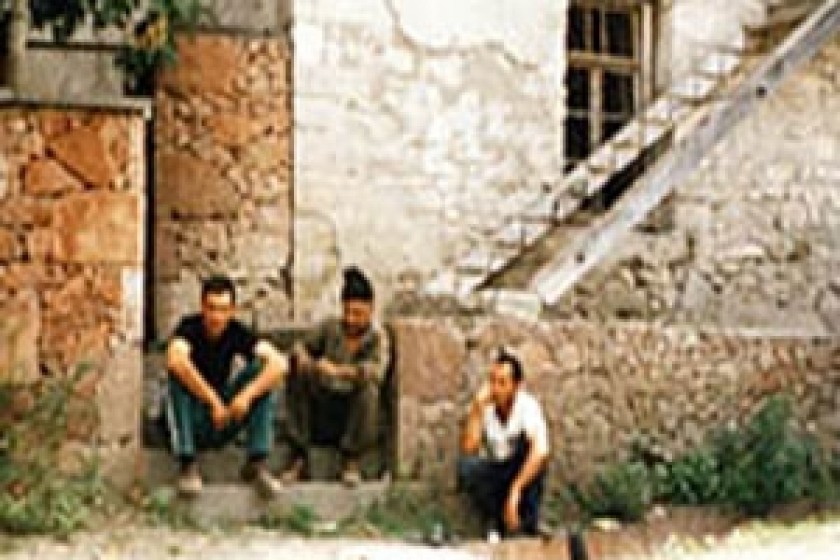
Abandoned by the System, the Ditavan School Is in Survival Mode
Lusine Balyan
Anahit Vardanyan
The eight-year school in the village of Ditavan in the Tavush Marz is the only bright spot in the village. Local residents impatiently await even the simplest event staged by the school children. They enjoy seeing their children's talents on display, even given the school's inadequate facilities.
The Ditavan school was built in the 1950s and hasn't been renovated since. Recently, the local mayor tried to rebuild the school with the help of Armenian Social Investments Fund, but for a variety of reasons, it never happened. This year the school administration was once again promised subsidies from the government to improve the building. But the year is ending, and the building is still in the same shape.
Although the school has only 53 students, there still aren't enough classrooms. For twenty years, students in the elementary grades have received their schooling in trailers, where it's hot in the summer and cold in the winter. Laboratories, computers, gymnasium and auditorium are unimaginable luxuries for a school that doesn't even have classrooms. Despite the miserable state of things, school's principal Armen Hakhverdyan manages to find bright spots in the current situation.
"Our students do very well. The proof is the number of students we have. More children go to school here than in the bigger villages nearby. There aren't too many students in each class, so it's like a private school. As a result our students make better progress."
After studying eight years in Ditavan, students have to continue their education in the neighboring villages; not all of them manage to do so. When a child leaves the village, it creates problems for his or her family. It's hard to blame villagers who are living day to day for not sending their children off to school.
If parents are willing to let their children go on with their education, there are two difficult options, given the lack of public transportation in the area. Either they can find a relative in a neighboring village to live with for two years, or they can walk a couple of dozen kilometers each day.
"If conditions were improved, the village could have a ten-year school. But what are we talking about--we don't even have basic conditions now. For instance, in warm weather we can hold physical education classes outside, but in the winter we have to have them in the corridor, which of course interrupts other classes," the principal said.
The daily village routine is rarely enlivened by school events. The reason is not a lack of ideas but a lack of facilities, including seats for the audience.
The school needs teachers, too, but no additional hiring is expected. The 12 teachers currently working are mainly from the Ditavan and the neighboring Azatamut.
"We can't find professionals from outside, since we can't offer good conditions. That's why a teacher of one specialization also teaches other subjects," Armen Hakhverdyan explained.
Abandoned by the Armenian educational system, the village school now operates in survival mode. The school children cultivate a garden to supply the school's basic needs, and gather wood in the forest to heat the classrooms.
"It's different being a school principal here. When the kids see their principal taking care of the cows or cutting grass, that influences principal-student relations," says Armen Hakhverdyan.
But he thinks that everyday relations have positive effects, too. "Since I know every student's family, I can better understand them. We don't have problems with the behavior of our students. When I hear from my colleagues in the city about the behavior of their students, I feel proud of my school. This is the advantage of our village."
Once students finish eighth grade and go on to school elsewhere, they usually leave the village forever. As a result the last high-school graduate to stay in Ditavan in the last ten years is now the principal of the school. Others only come to Ditavan to cure their homesickness, to remember their parents and the place they were born.
 Videos
Videos Photos
Photos




Write a comment